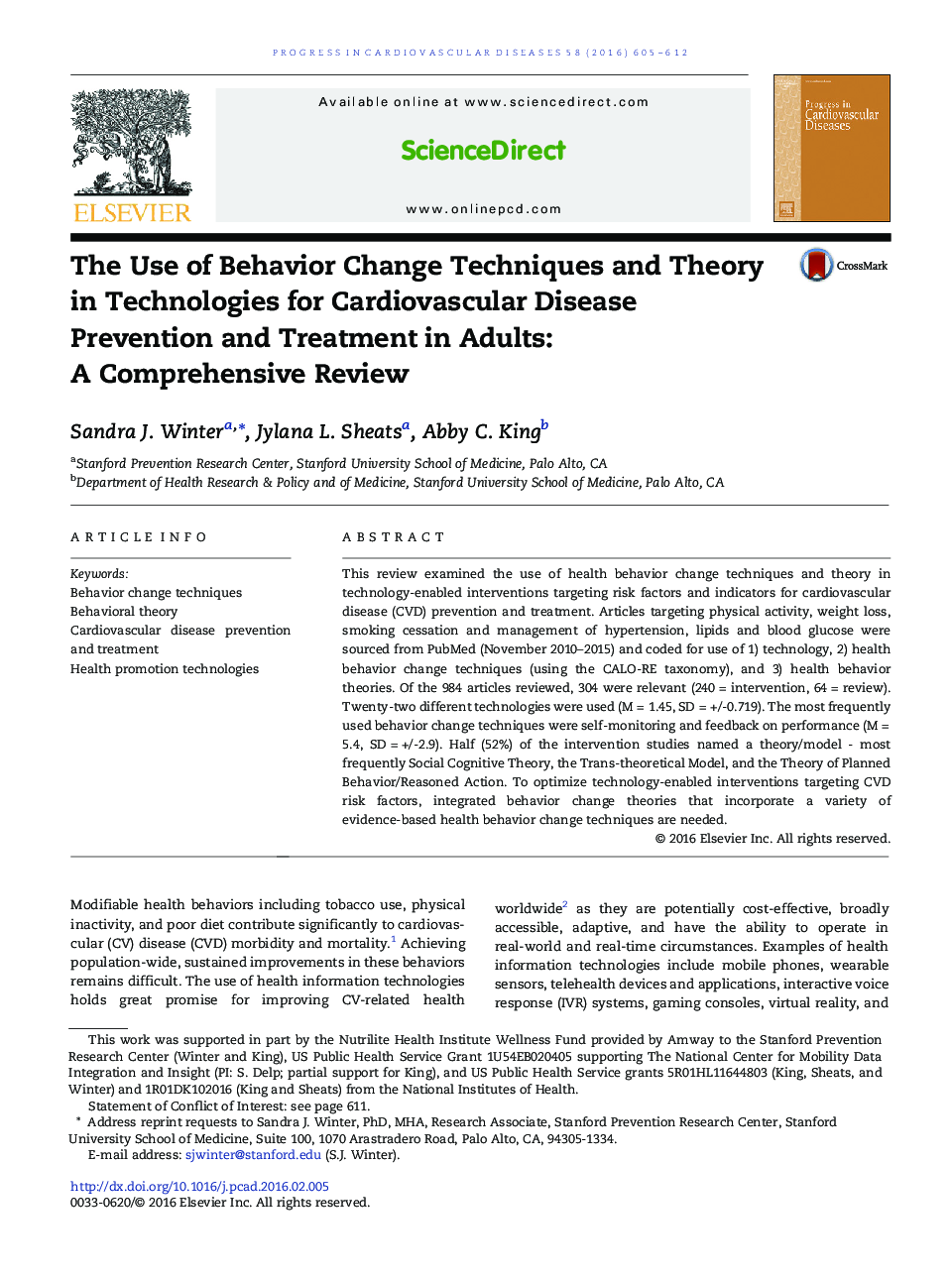| Article ID | Journal | Published Year | Pages | File Type |
|---|---|---|---|---|
| 3006241 | Progress in Cardiovascular Diseases | 2016 | 8 Pages |
This review examined the use of health behavior change techniques and theory in technology-enabled interventions targeting risk factors and indicators for cardiovascular disease (CVD) prevention and treatment. Articles targeting physical activity, weight loss, smoking cessation and management of hypertension, lipids and blood glucose were sourced from PubMed (November 2010–2015) and coded for use of 1) technology, 2) health behavior change techniques (using the CALO-RE taxonomy), and 3) health behavior theories. Of the 984 articles reviewed, 304 were relevant (240 = intervention, 64 = review). Twenty-two different technologies were used (M = 1.45, SD = +/-0.719). The most frequently used behavior change techniques were self-monitoring and feedback on performance (M = 5.4, SD = +/-2.9). Half (52%) of the intervention studies named a theory/model - most frequently Social Cognitive Theory, the Trans-theoretical Model, and the Theory of Planned Behavior/Reasoned Action. To optimize technology-enabled interventions targeting CVD risk factors, integrated behavior change theories that incorporate a variety of evidence-based health behavior change techniques are needed.
